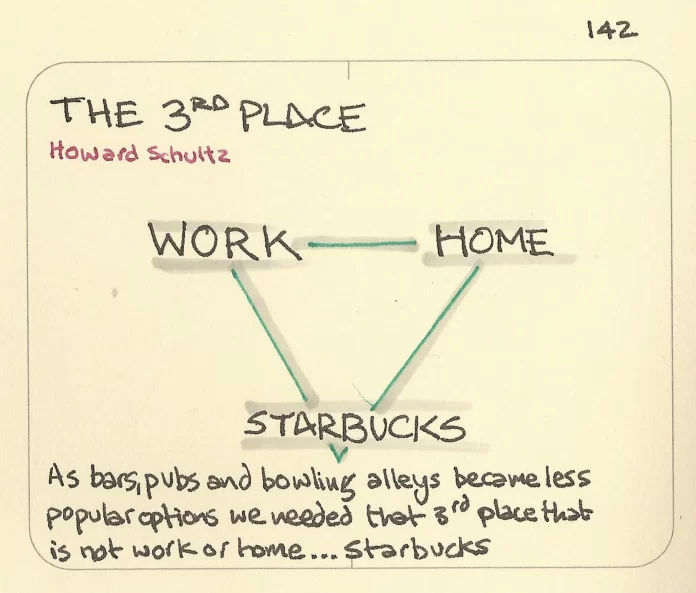Earlier this year, my friends and I wanted to go to FAN EXPO Vancouver together, but it did not work out, and I ultimately went alone. Although we all love nerd culture and conventions, going to FAN EXPO was simply too expensive. Being unable to do something fun with friends because of price barriers is a recurring problem that I’ve encountered over the past several years. There have been times when we want to go out and do something fun, like going to the movie theatre, visiting places like Playland, or attending events like the Vancouver Christmas Market, but the cost of the tickets and snacks were too high for our budgets.
I wondered if this problem was only affecting my friends and I, but as it turns out, we are not the only ones troubled by this issue. These monetary restrictions around socializing are related to a phenomenon known as the loss of the third place, which affects how people interact in spaces outside of their regular activities. The term “third place” was coined by American sociologist Ray Oldenburg in the year 2000 to describe public spaces where people can meet that are separate from home and work. Oldenburg explains that third spaces are where people can gather at a low cost — or for free — typically in places like libraries, cafes, gyms, community centres, public parks, and churches.
The “loss of the third place” is an issue I experienced and witnessed first hand. I have known my two closest friends since middle school. Growing up, our third places were the study hall, the school bus, the mall, and occasionally, church. However, now that we are out of high school, we have struggled to find affordable places to meet regularly. This is why we have mostly turned to online spaces. We play multiplayer video games like Baldur’s Gate 3 (2023) or Among Us (2018), advance our Dungeons and Dragons campaign, and host movie nights through Discord. These digital landscapes have become our new third place.
Socializing in online spaces has become one of the easiest ways for people to stay connected and help them maintain a sense of community. But even with online resources, there is still a cost. Most triple-A video games are sold for around $70 to $100 each, a price barrier that stands in the way of playing with my friends. There have been times where I’ve missed out on playing online with my friends because I cannot afford the game at the moment and have to wait until it goes on sale. Not to mention, these games require a gaming PC or console to run them, and these can cost hundreds or even thousands of dollars. Sure, these video games and gaming systems are a one-time purchase — something I personally prefer over paying for each individual in-person event that adds up over time — but that still presents a massive barrier to entry. It feels like even in online spaces, my friends and I are still running into the same affordability restrictions that impede us from gathering in person.
In my opinion, people desperately need more convenient and accessible places to socialize with others. Considering the adverse effects of isolation on one’s health, I would argue that community is as essential as food and water. One thing I did to combat the loss of the third places in my life was to analyze the opportunities I have to socialize without having to spend more than planned. This semester, I consciously registered for only in-person classes to engage more with my community. Whenever I see an event happening on campus that interests me, I check it out, even if it’s only for a few minutes. I will admit it’s annoying at times, considering I live pretty far from campus, but I have made so many new friends thanks to these efforts!
If you are looking for a third place for you and your friends, I encourage you to make the most of what there is! Check out what’s happening within your community. If you see a post for an event in your area that catches your attention, consider attending! If there are parks or public spaces that you haven’t visited yet, consider going with your friends. Look into your local recreation centres or libraries for events and activities, or follow news sources for updates on what’s going on locally. I know that for me, simply having more people to talk to and stepping out of my comfort zone has made a world of difference.


